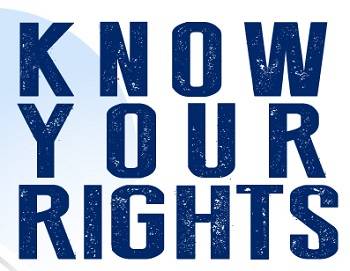It is narrated on the authority of ‘Abdullah ibn ‘Umar ![]() that the Messenger of Allah
that the Messenger of Allah ![]() said:
said:
A Muslim is a brother of his fellow Muslim, so he should not oppress him, nor let him down. Whoever fulfills the needs of his brother, Allah will fulfill his needs; and whoever relieves his Muslim brother of a distress, Allah will relieve him of one of the distresses of the Day of Judgment; and whoever screens (the faults) of a Muslim, Allah will screen him on the Day of Judgment. [Al-Bukhari]
Explanation of the hadith:
“A Muslim is a brother of his fellow Muslim,” refers to the brotherhood of Islam. Any two Muslim men are described as brothers because both of them share the quality of being Muslim. This applies to the free and the slave, the mature and the one in the age of discernment.
“…he should not oppress him,” the statement is a command to refrain from oppression because a Muslim wronging another Muslim is unlawful.
“…nor should he let him down,” means that he should not leave him for anyone or anything to harm him. Instead, he should support him and avert harm from him. This is more specific than avoiding wrongness and oppression; it may be obligatory or recommended according to the different situations and states. The following addition is made in the narration of Al-Tabarani ![]() on the authority of Salim, “nor should he leave him in a calamity that has stricken him.” According to the narration of Muslim on the authority of Abu Hurayrah
on the authority of Salim, “nor should he leave him in a calamity that has stricken him.” According to the narration of Muslim on the authority of Abu Hurayrah ![]() “Nor should he despise him." He added: "It suffices a man for evil to look down upon his Muslim brother."
“Nor should he despise him." He added: "It suffices a man for evil to look down upon his Muslim brother."
“Whoever fulfills the needs of his brother,” is confirmed by the narration of Muslim on the authority of Abu Hurayrah ![]() “Allah fulfills the need of a servant so long as he fulfills the need of his brother.”
“Allah fulfills the need of a servant so long as he fulfills the need of his brother.”
"…and whoever relieves his (Muslim) brother of a distress," refers to whatever grief, anxiety and disaster may afflict the Muslim.
“…and whoever screens (the faults of) a Muslim,” i.e. sees him in a shameful situation and does not disclose it to the people. But, of course this does not mean not to disapprove of his evildoing in what is between them. This makes it permissible for him to witness against him concerning this act if he disapproves of it and advises him but he does not desist and rather does it publicly. A person is commanded to screen himself if he commits something shameful. But if he goes to the judge and confesses it this will not be cancelled. It seems that one is commanded to screen a sin which was actually done, and disapprove of a sin whose perpetrator is in flagrante delicto which he should condemn, otherwise he should raise his case to the judge. It is not considered a form of unlawful backbiting: it is rather an obligatory advice. It refers also to abstention from backbiting because whoever discloses the defects of his brother has not screened him.
"Allah will screen him on the Day of Judgment", is confirmed by his saying in the narration of Al-Tirmithi ![]() on the authority of Abu Hurayrah
on the authority of Abu Hurayrah ![]() "Allah will screen him in the World and in the Hereafter.”
"Allah will screen him in the World and in the Hereafter.”
The hadeeth includes encouragement to cooperation, good companionship and conviviality. It highlights the fact that one is rewarded in accordance with the acts of worship he has offered (i.e. one reaps what he sows). The hadeeth also denotes that whoever swears that so-and-so is his brother, thereby intending the brotherhood of Islam, has not taken a false oath. This meaning is implied by a hadeeth narrated by Abu Dawood ![]() on the authority of Suwayd ibn Hanthalah about a story between him and Wa’il ibn Hujr.
on the authority of Suwayd ibn Hanthalah about a story between him and Wa’il ibn Hujr.


 Home
Home Discover Islam
Discover Islam Quran Recitations
Quran Recitations Lectures
Lectures
 Fatwa
Fatwa Articles
Articles Fiqh
Fiqh E-Books
E-Books Boys & Girls
Boys & Girls  Ramadan
Ramadan Fatwa Audios
Fatwa Audios Month of Mercy
Month of Mercy Women
Women Eed Al- Fitr
Eed Al- Fitr Food Recipes
Food Recipes Videos
Videos

 Prayer Times
Prayer Times












